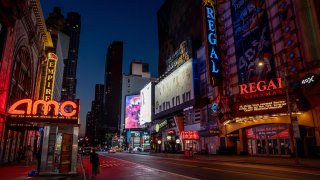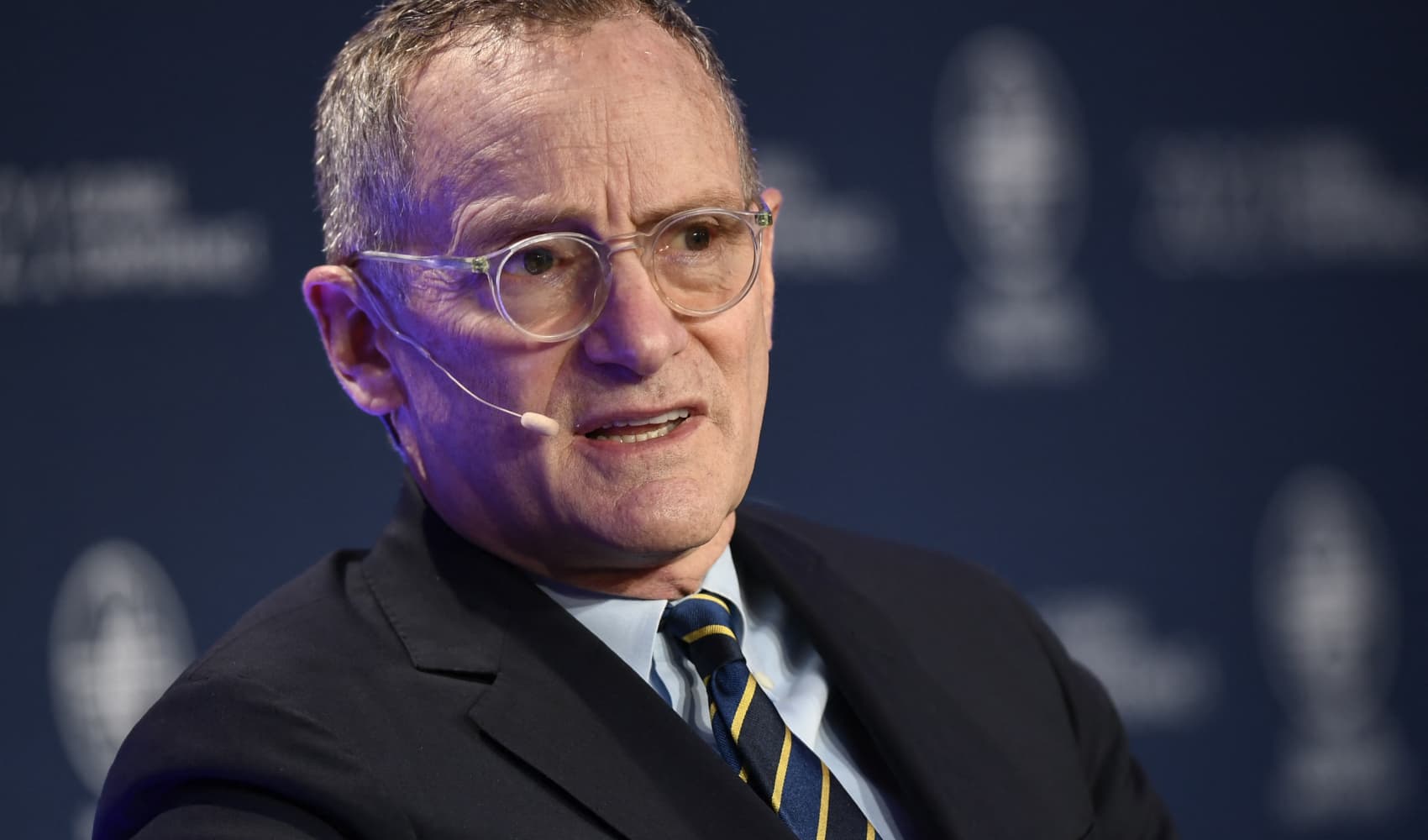
- Exhibitors are no longer going to rely solely on studios to drive consumers to theaters.
- A lack of product during the pandemic, and a slow start to 2022, has led movie theater owners to be more aggressive with their marketing strategies.
- They have become more innovative with food and beverage offerings and more flexible in the type of content they place on the big screen.
- For big chains like AMC, Regal and Cinemark, the emphasis has been on adding live event streams, like concerts, sports and even Dungeons & Dragons campaigns.
- Smaller chains are still investing in the theatrical experience, but they are more heavily using digital and social advertising to target their local communities.
"If you build it, they will come."
Universal's president of domestic theatrical distribution borrowed the iconic line from "Field of Dreams" during the studios slate presentation at CinemaCon on Wednesday to describe how moviegoers are flocking back to theaters now that there is a steady stream of content available.
Domestic ticket sales for the first four months of the year may be down around 44% compared with 2019 pre-pandemic levels, but cinemas are seeing significant gains over last year.
Feeling out of the loop? We'll catch you up on the Chicago news you need to know. Sign up for the weekly Chicago Catch-Up newsletter here.
Blockbuster titles like Warner Bros.′ "The Batman," Paramount's "Sonic 2″ and the Marvel-Sony's "Spider-Man: No Way Home" have led to a 338% increase in ticket sales from 2021, reaching $1.95 billion, according to data from Comscore.
Operators are glad for the new titles and were reassured by studios throughout CinemaCon last week that they will continue to receive a large number of theatrical exclusives going forward.
For the most part, the day-and-date experiment of the pandemic has ended and studios used their time at the annual convention hosted at Caesar's Palace in Las Vegas to tout their biggest and boldest tentpoles as well as showcase a diversity of content.
Money Report
Exhibitors, however, are not going to rely solely on studios to drive consumers to theaters. A lack of product during the pandemic, and a slow start to 2022, has led movie theater owners to be more aggressive with their marketing strategies, more innovative with food and beverage offerings and more flexible in the type of content they place on the big screen.
A bold reminder for moviegoers
For big chains like AMC, Regal and Cinemark, the emphasis has been on adding live event streams, like concerts, sports and even Dungeons & Dragons campaigns, and upgrading its theaters with state-of-the-art projectors and sound systems.
Last month, AMC announced it was investing $250 million to bring Cinionic's laser projectors to 3,500 of its U.S. auditoriums by 2026. Laser is largely considered a step-up from digital projection, offering brighter pictures, and therefore, a crisper image. The bulbs also do not need to be replaced multiple times a year, meaning upkeep is much easier for theater operators.
Cinemas big and small have long partnered with IMAX and Dolby to bring large-format options to consumers, but updating the digital projectors ensures that even those unwilling to pay an upcharge for premium options will still have a quality experience at the cinemas. The hope is that this experience will inspire moviegoers to continue to leave their couches and return to theaters for future film releases.
AMC went so far as to launch its first-ever advertising campaign last September featuring Nicole Kidman with the tagline "we make movies better." The company invested around $25 million in the campaign.
"We wanted to make a bold, straightforward statement to remind moviegoers of that immersive, communal, multi-sensory experience that you can only get by seeing a movie in a theater," said Alicia Cook, director of advertising at AMC Theatres, during a CinemaCon panel hosted by CNBC on Tuesday.
Traditionally, movie theater owners have relied on studios to promote films and drive moviegoers to their local cinemas. At the time of the ad's launch, AMC CEO Adam Aron said the company will no longer depend on "what's always worked before," noting that the pandemic has pushed the industry into "uncharted waters."
'We do crazy stuff'
Smaller chains with less access to large sums of capital are still investing in the theatrical experience by upgrading seats, projectors and sound equipment, but they are more heavily using digital and social advertising to target their local communities.
"We are more nimble than the larger organizations," said Rich Daughtridge, president and CEO of Warehouse Cinemas, during Tuesday's panel. "I think our superpower is eventizing but also creating those experiences around going to the movies. So, we do crazy stuff."
Daughtridge said promotions range from offering margaritas with movie tickets to special "daddy-daughter" date night showings. Mid-pandemic, Warehouse Cinemas capitalized on the release of Solstice Studio's "Unhinged" by hosting a car smash event during the film's fifth week in theaters.
Customers who bought a ticket could take swings at an old car, leading to a 2% lift in ticket sales compared to projections of what the film would have done if Warehouse had not hosted the event, he said.
Events at Reading Cinemas in Australia and New Zealand are a little more tame, according to Ben Deighton, general manager of marketing for the cinema chain. A surprisingly popular event at one of his cinemas is a knitting club.
"We just started knitting sessions .. and knitting clubs come in and watch a movie and knit," he said during Tuesday's panel, noting that the idea came from a local patron.
Starting this month, Cinepolis has begun a program called Self-care Sundays, which offers guests gold undereye patches and a small popcorn with any ticket purchase.
"One of the things we noticed naturally over the years people were coming to our theaters and practicing their own self-care," said Annelise Holyoak, senior national director of marketing and loyalty at Cinepolis, during Tuesday's panel.
Each showing also has a 10-minute mindfulness meditation to relax consumers before they enjoy their film.
"I think as marketers we tend to say 'this movie is playing,' 'this movie is playing,'" Daughtridge said "I think from an engagement perspective, let's talk a little bit more about why going to the movies is a good thing to do ... I think the messaging that we are trying to do to create that engagement is more about the why moviegoing makes sense versus just the what movie is playing."






